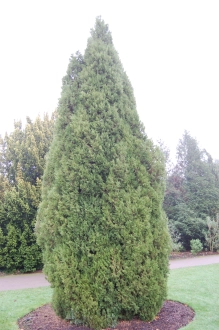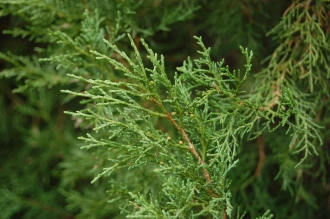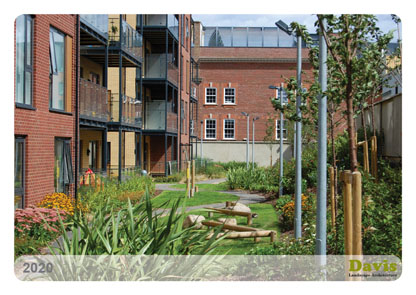Position: Full sun
Flowering period: Late winter
Soil: Moist, well drained
Eventual Height: 16m
Eventual Spread: 7m
Hardiness: 3b, 4a, 4b, 5a, 5b, 6a, 6b, 7a, 7b, 8a, 8b, 9a
Family: Cupressaceae
Juniperus virginiana is a slow growing, long lived evergreen small tree or large shrub with an upright habit. Its mid green leaves appear in two forms, juvenile and adult. Its juvenile leaves are sharp, needle like, spreading and up to 10cm long. Its adult leaves are scale like and up to 4mm long. Its trunk is short and may achieve a diameter of up to 1.5m. Its red/ brown bark is fibrous and peels off in narrow strips. Its (usually) dioecious flowers are pollen cones are light brown, up to 3mm long, wind pollinated and are not self fertile. Its dark purple fruit are berry like seed cones and are up to 7mm across. Its root system is fibrous, this may help to stabilise soils.
Juniperus virginiana, commonly known as the Eastern Red Cedar, Red Cedar, Eastern Juniper, Red Juniper or Pencil Cedar, is native to eastern North America. In it native habitat it grows in prairies, old pastures and limestone hills. This tree is a pioneer invader enabling it to colonise cleared or eroded land. In many areas of the USA this tree is considered to be an invasive species, despite being native. Some people are allergic to the pollen of this tree.
The etymological root of the binomial name Juniperus is derived from the old Latin name for the Juniper tree. Virginiana is derived from the Latin meaning ‘from Virginia, USA’.
The landscape architect may find Juniperus virginiana useful as a tree to stabilise soils and protect them from wind erosion. It is also an attractive upright evergreen tree. There are numerous varieties of this tree with various habits to choose from. Once established this tree is drought tolerant.
Ecologically, Juniperus virginiana seed cones are attractive food for birds and mammals. Its structure provides shelter for birds.
Juniperus virginiana prefers moist, fertile, well-drained soils. It tolerates most pH of soil.
Juniperus virginiana requires little maintenance.






Leave a comment